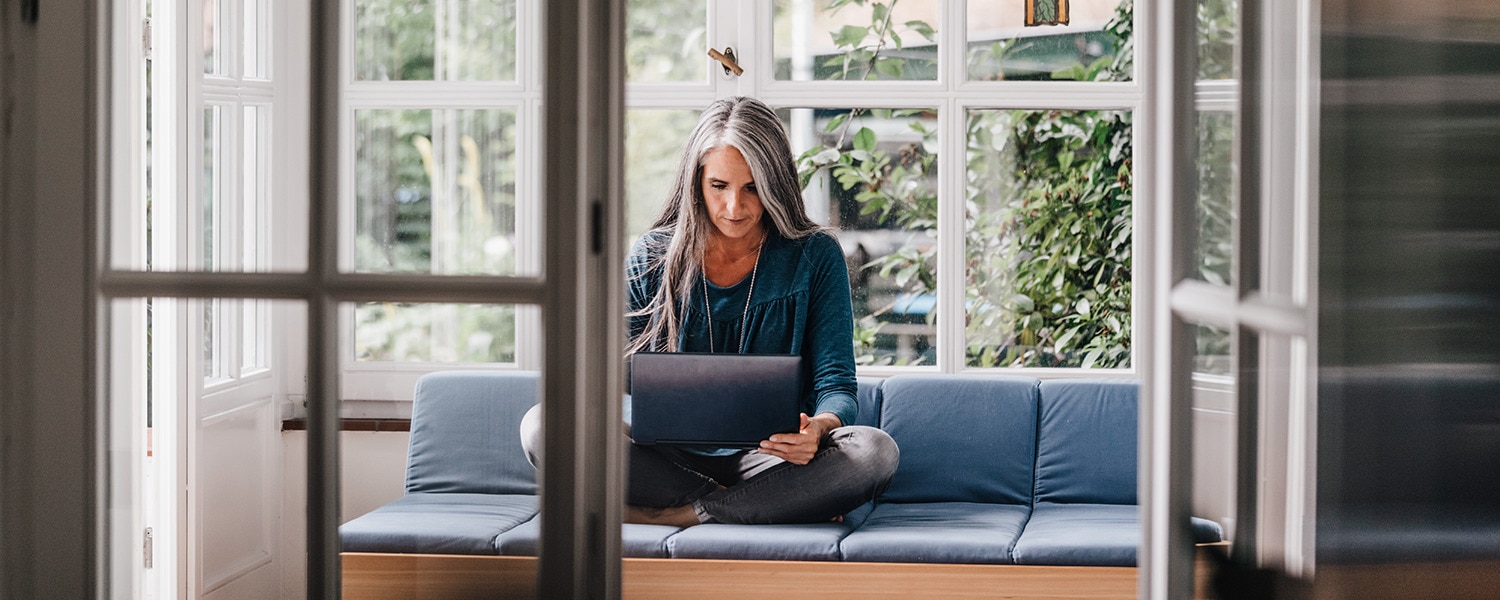What is Menopause?

The menopause is a subject that’s weirdly shrouded in mystery – but just like menstruation, it’s a totally natural process. We’ll talk through what age it usually starts at, the symptoms and signs of menopause as well as possible treatment.
Why is this completely natural process so shrouded in mystery? There is a prejudice that menopause signals a great loss: of fertility, sexuality, youth and even womanhood. But this couldn’t be further from reality. It is simply your body entering a new stage of life.
What are the symptoms of menopause?
Menopause is when your oestrogen and progesterone levels fall, and as a result, you stop ovulating. It also includes a whole range of symptoms and changes that a woman goes through just before or just after she stops menstruating for good.
The first sign is usually a change in the pattern of your periods. Maybe your flow becomes uncharacteristically heavy. Or much lighter and more intermittent. Maybe you have a period every two or three weeks, or maybe none for months at a time. You might welcome the change – or maybe you dread it. All this is normal.
One night, I woke up at 3am, boiling hot. It was like nothing I had ever experienced before.
The change in your period pattern is normally accompanied by symptoms like hot flushes, night sweats, irritability, sleep disturbances and vaginal dryness. But there are lots of other signs too, such as dizziness, bloating, weight gain, mood swings, headaches and loss of libido. Yep, menopause is a great time to be a woman!
When you first notice changes that may be menopausal, it’s important to talk to your doctor, have a blood test for confirmation and get advice. Though understandably, current government guidelines mean you may have to wait longer for a doctor’s appointment than usual.
When does menopause start?
The menopause is a gradual process that tends to happen in stages. It can begin as early as 40 or as late as 60, with the average age being 51. What age it happens to you is genetic, so you’ll probably be of a similar age as your own mum was when she went through it. Symptoms can start months or even years before your periods stop – known as the ‘perimenopause’ – and typically continue for four years afterwards.
Perimenopausal, menopausal, or just approaching this new phase of womanhood? We’re stronger when we share our stories, so we’d love to hear your experiences at #wombstories
Taking the menopause in your stride
Just like menstruation, menopause is a totally natural process that should be embraced. No longer having to deal with the hassle of periods and PMS is a great relief for many women. As a result, the menopause can be a source of liberation, making you feel like you’re entering a new era of confidence and feeling at home in your body. As one woman told us, “I prefer the lesser known term ‘second spring’, because that’s what it is for me - a time for new growth”.
Despite this, it can be tricky to navigate, emotionally and physically. But knowing what it entails means you can take it in your stride.
What treatment is there for menopause?
Some women get no symptoms, but most get at least one or more. If this is you, you needn’t suffer in silence. Regular exercise can help a lot with reducing the symptoms, and acupuncture and hypnotherapy have both been found to be effective in tackling hot flushes and insomnia.
In the past, HRT or hormone replacement therapy [1] was the standard treatment. While studies have linked this to breast cancer, blood clots and strokes, it has proven to be incredibly effective for many women, with the benefits often outweighing the risks when used under the right circumstances. As a result, many doctors are once again starting to recommend short-term hormone therapy for women within 10 years of menopause.
The risk posed to older women however is believed to be higher. The risk of breast cancer, for example, being compared to the risk reported with obesity and low physical activity. [2]
Your options may feel a bit overwhelming, as one woman explained, “There are so many drugs and supplements out there - all with their own side effects, which can leave you feeling confused and frustrated”, which is why it’s wise to talk it through with your doctor.
As bladder control can be affected by the menopause, it’s a good idea to have some incontinence liners in your bag in case this becomes an issue. And don’t forget to keep some liners (such as Libresse DailyFresh) handy, too, in case your periods become unpredictable.
Did you know?
Medical disclaimer
The medical information in this article is provided as an information resource only, and is not to be used or relied on for any diagnostic or treatment purposes. Please consult your doctor for guidance about a specific medical condition.

